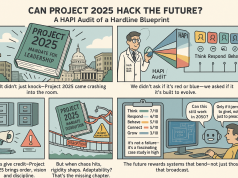The global pandemic has reshaped every facet of our lives, but perhaps none so enduringly as the world of work. As we cautiously step into the post-pandemic era, it’s clear that the traditional job creation playbook needs a rewrite. What worked in the pre-COVID world may not hold water in the new reality of remote work, the burgeoning gig economy, and rapidly evolving skill demands.
Our understanding of job stability and career progression was upended as industries ground to a halt, and millions found themselves reevaluating their work-life balance. The sudden shift to remote work introduced a new paradigm that both employers and employees found themselves navigating with little precedent. For many, this transition unearthed the potential for increased flexibility and autonomy. Yet, for others, it highlighted stark divides in digital access and adaptability.
The gig economy—already on the rise pre-pandemic—has experienced a turbocharged growth. Individuals are piecing together a living through a patchwork of freelance projects, short-term contracts, and on-demand service roles. This new wave of ‘gig workers’ is not bound by traditional employment relationships, which necessitates a reexamination of labor laws and social safety nets to ensure these workers are not left vulnerable.
Skills in demand have also shifted, with digital literacy and adaptability becoming as critical as specialized expertise. Lifelong learning is no longer a lofty goal; it’s a requirement for job security. How can policymakers foster an environment conducive to this new reality? What measures can be taken to ensure that workers are equipped with the skills necessary for the jobs of tomorrow?
Potential policy interventions could include incentivizing businesses to provide ongoing skill development, rethinking education to be more adaptable to changing job markets, and creating robust support systems for gig workers. It is also critical to address the digital divide that leaves many behind in this new job market.
Some companies have already set a precedent for successful adaptation. Case studies of these trailblazers can provide valuable insights for others. From tech giants that have embraced remote work to small businesses that have pivoted to new service models, each story offers a piece of the puzzle in our understanding of the post-pandemic workplace.
As we contemplate these shifts, questions about the long-term impacts on the structure of work and employee welfare arise. Will remote and gig work lead to greater job satisfaction and productivity, or will it exacerbate feelings of isolation and job insecurity? What is the role of government and the private sector in ensuring the workforce is not only resilient but also thriving in this new landscape?
‘The Work Times’ invites readers to engage with these critical discussions. Share your thoughts and experiences on the future of work. How has the pandemic reshaped your career or business, and what do you believe is the role of policymakers in supporting job creation in this new era?
The post-pandemic job market is undeniably in flux. But with thoughtful policy intervention and a willingness to adapt, we can build a job creation strategy that is resilient, flexible, and inclusive. Now is the time for employers, workers, and governments to collaborate in shaping a future that works for everyone.



























